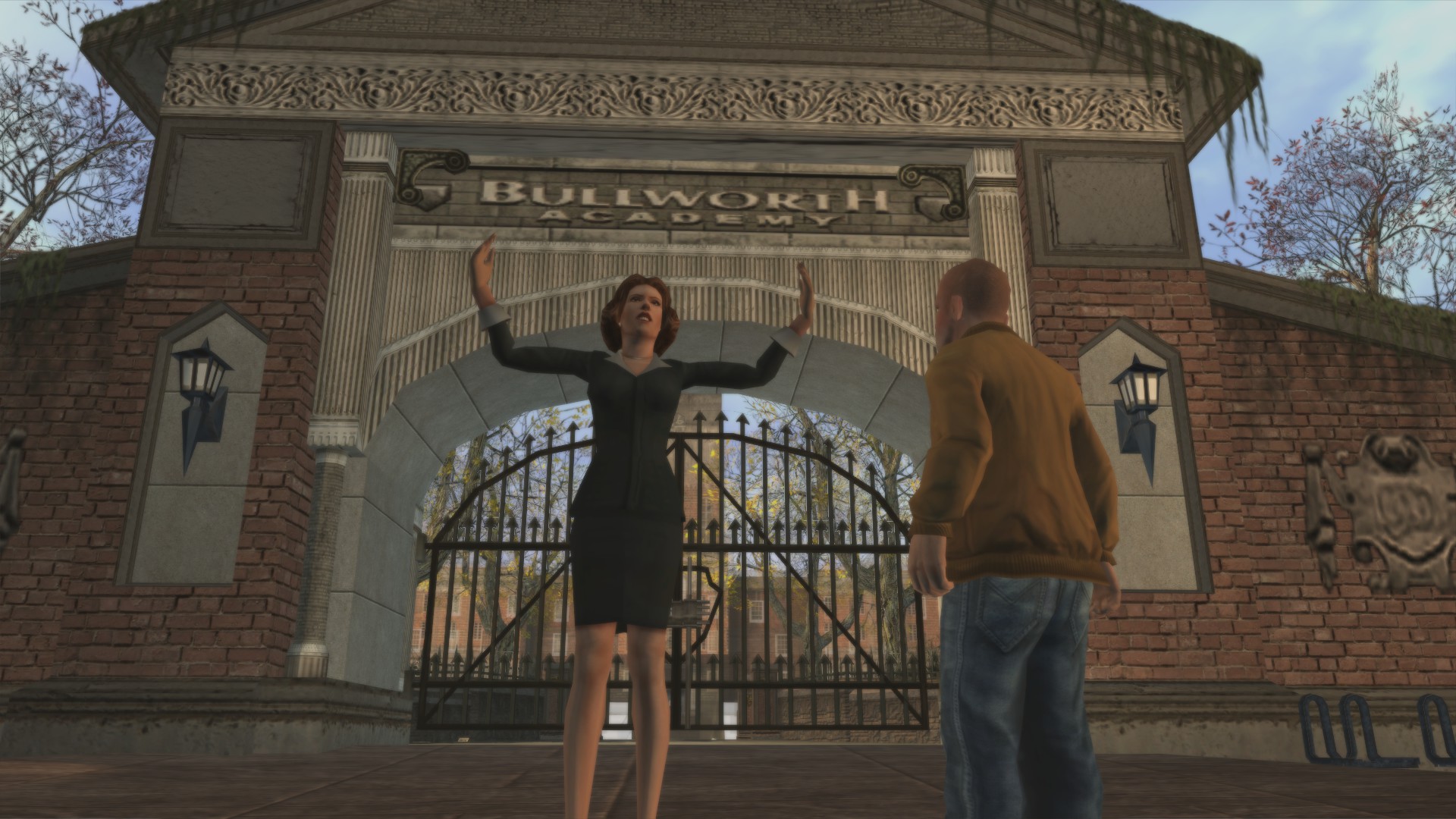Rockstar games was developing Bully 2 at their New England studio in 2008, and had six to seven hours of playable game content, before development halted as developers were moved to other projects. This is according to ex-developers at Rockstar New England and outlined in an expose by Game Informer, who say that by the end of 2009 Bully 2 was effectively dead.
The original Bully, released in 2006, took Rockstar’s signature sophomoric humor to the setting of a private school. It’s a fondly-remembered cult classic among many, and even got an expanded edition in 2008. The success of that expanded edition prompted Rockstar to buy New England-based Mad Doc Software and rename it Rockstar New England.
There have been many stories over the years of the game’s development and cancellation, but none have so thoroughly detailed it with inside sources as the Game Informer report. Of note, these sources all but confirmed that the 2017 leaks of concept art on a Twitter account called Bully 2 Info were generally legitimate.
Bully 2 was in active development for something like 12 to 18 months, according to those developers, before it was softly killed by Rockstar management. At one point, it appears that almost the entire New England studio of 50-70 people was working on the game. Over that time, however, more and more developers were moved to games like Max Payne 3 and Red Dead Redemption. Other developers left in protest as the recently-acquired New England studio started to conform to Rockstar’s internal death march of crunch.
The vision for the unfinished game was expansive, and while the map was small by today’s standards, every building was intended to be enterable either legitimately or by breaking and entering. Technology developed in the prototype, like dynamically breaking glass, would find its way into later Rockstar games. NPCs were also intended to remember a bit about the character’s behavior, an idea which later made its way into Red Dead Redemption 2. Other details, like dynamically growing grass for lawn-mowing, are the kind of signature in-depth game mechanics that define the last decade of Rockstar’s games.
It’s an interesting expose on the intersection of business, workplace management, and game development that shapes how games are made. Great reporting, Game Informer.


